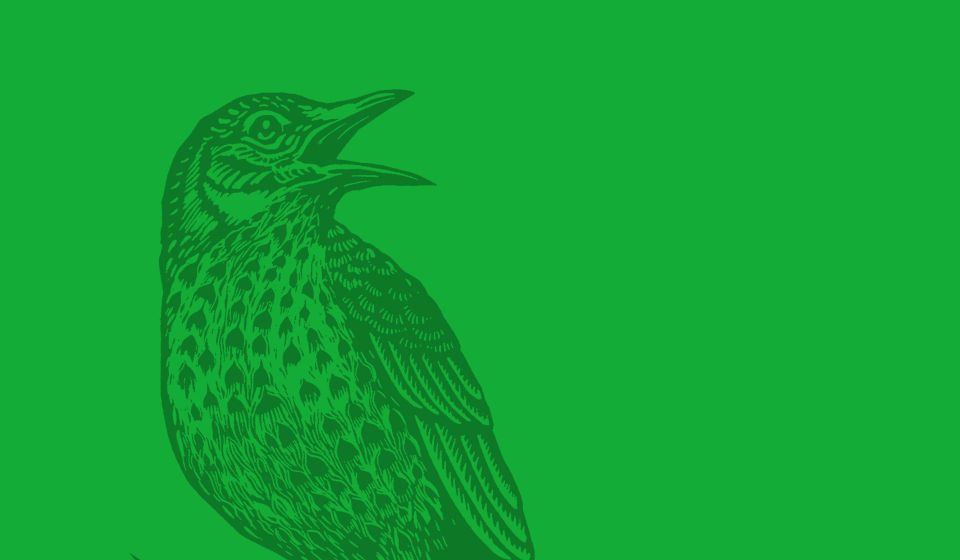Blog | Nature unlocked
May 20, 2020
Pete is trained as an Ecologist and in theoretical and practical Nature Conservation. In this blog he reflects on nature’s resurgence during lockdown and gives tips for appreciating it right here in Bristol.
As we all hunker down at home during this difficult time, an increasing number of us are noticing the natural world around us as never before. Whether it is the presence of birdsong, or sightings of animals that we don’t often see, the pandemic has started to change many people’s relationship with the natural world around them.
The resurgence of wildlife is not a mass migration of new animals into Bristol, but more a freeing of the city’s birds and mammals to go about their lives unconcerned by people or traffic. The buzzards near Purdown, rarely seen before, can now be seen on any sunny day; the foxes are making themselves at home on the streets.
As for the birdsong… If the cloud of lockdown has any silver lining, then that’s it! Urban birds are known to sing louder than their rural cousins to be heard over the traffic. But, far from quieting down now the traffic is so sparse, Bristol’s birds seem to be revelling in the lack of competition. They might simply be stuck in their ways, but I like to think that they are enjoying the quiet around them.
The Dawn Chorus peaked in early May, but it is definitely still worth getting up before dawn (one that promises sun if possible) and taking a hot drink outside to enjoy the chorus even in late May. Over the last decade or so, Bristol’s dawn chorus has diminished. Hopefully this year will buck the trend.
Mirroring the changes in the city’s wildlife, lockdown has also facilitated a change in our behaviour. The absence of many of the things that we have come to depend on has afforded us the time and space to discover what we truly value, and what things we can do without. It turns out that contact with the natural world is at the top of the list.
As our daily rituals of commuting and socialising disappear, the plants coming into flower, whether wild or in gardens, are a way of watching time progress (it’s the Lilac at centre stage at the moment in the gardens, and May flowers, Jack-by-the-Hedge and Cow Parsley in the hedges).
That the prevalence of birdsong in the city has been noticed and listened to by so many people is brilliant, and speaks of a depth of response to the natural world that few of us could believe still existed.
Appreciating the smaller things in life
We may not be able to get out to the many amazing wild areas and nature reserves in and around Bristol right now, but fortunately many of us can access some of the most fascinating animals in the world.
You don’t need to be David Attenborough – it’s all there to see in any garden, hedge, park, old wall, pond, patio or piece of waste ground. You won’t find lions, meerkats or birds of paradise, but the insects and bugs are equally enthralling.
I’ve been into creepy crawlies since I was knee-high to a grasshopper. It’s an endless subject to explore as insect species outnumber all other living species many-fold. If you enjoy the amazing forms that animals come in then insects are for you. They are the most diverse and extreme group of animals on earth when it comes to size, shapes and colours.
If you’re into watching the behaviour of animals on documentaries then you’ll love insect’s strategies for hiding, hunting, escaping, and courting. The thing to remember is that everything that an insect does, it does for a reason, usually related to one of the following needs: eating (whilst not getting eaten!); mating; raising the next generation; and avoiding extreme temperatures
If fewer grassy areas of Bristol are mown then insect species may breed in greater numbers than usual. Some of these species will be present this summer, some next summer.
One beautiful possibility is a large increase in the number of orange tip butterflies (those lovely white and orange butterflies that are around throughout May). Their caterpillars eat a plant that is found in Bristol’s hedges and verges. Most of these plants are often cut down about four weeks before the caterpillars leave them. If this happens less due to lockdown then we might see many more of these lovely insects than usual this time next year.
An opportunity for nature
Nature is strong and resilient – lockdown is showing that if it is not subjected to a constant war of attrition it can recover with little assistance.
As the nation starts to look at building a new “normal”, we have the chance to integrate the natural world into the plan. The danger is that a course of action that prioritises the “strongest possible economy as quickly as possible” may prevent the environment – and how much we all value it – from being taken into account.
The lockdown is likely to be remembered as either the beginning of the recovery of Planet Earth, or a great missed opportunity.
The response to XR’s post-lockdown actions by the public, the media and our political figures will be very telling.
About us
We are part of an international movement standing up for climate justice and against the mass extinction of millions of species. We use people power to demand our Government acts with urgency on the climate and ecological emergency.
Get involved
We need you – whoever you are, however much time you have – to help build a powerful movement.

Sign up to the XR Bristol Newsletter
Get the latest XR news and updates about actions and events in the Bristol area

Support us. Donate to XR Bristol
A monthly or one-off donation will help us raise awareness, train members and fund actions.
